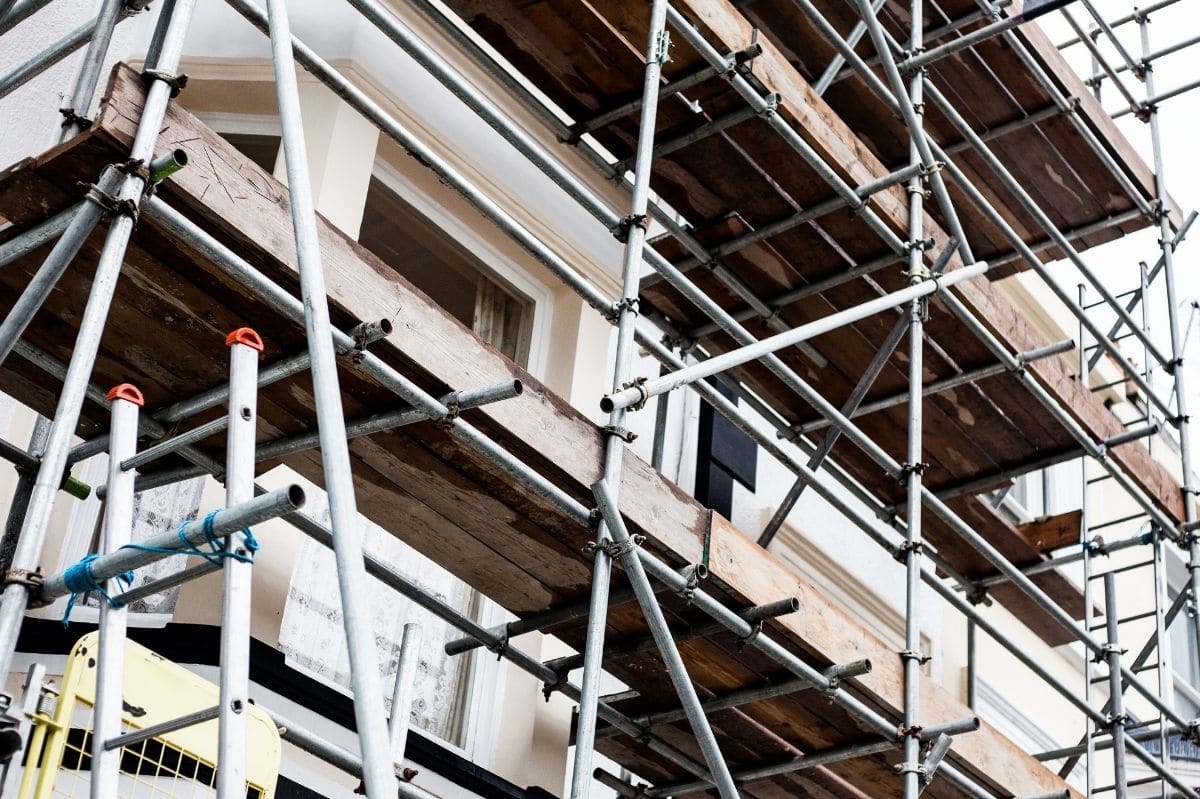Building and maintenance costs are likely to increase over the next year
A quick prediction for 2022:
Building and maintenance costs for body corporates are set to spike.
That’s not the news owners want to hear, but it is a reality all the evidence is pointing towards and the trend has already begun.
Most people will be aware that there is a current supply crisis. If you’ve been to the supermarket in the last few weeks you will have seen bare shelves and limited access to common groceries to an extent that many consumers will have never seen in their lives before. Well, the same issues that are affecting Coles and Woolworths are also affecting the building industry. Except maybe more so, as while you may be able to live a for few weeks without an orange there are no easy replacements for critical building materials like steel and timber, let alone the contractors needed to construct them.
In September, Master Builders Queensland surveyed its members on material delays and cost increases. Those findings saw builders reporting significant material delays of up to a month on goods including timber, steel, windows, doors, roof tiles, bricks, electrical equipment and waterproofing insulation. All materials that are commonly used for body corporate repairs. The cost of those items was rising a minimum of 15 per cent across all of those items and in many cases, over 25 per cent.
Then, if a builder can get materials on time and at a reasonable price, there are issues with finding people to do the work. The survey found delays in builders being able to hire carpenters, bricklayers, glaziers, roof installers, general labourers, plumbers and electricians. Cost increases for these trades were all going up over 15 per cent.
And that survey was from September before anyone had even heard of Omicron. We don’t have the statistics yet but it is hard to think things have gotten better since then.
Perhaps there is some hope that supply issues will ease over the next 12 to 24 months. Our management of the Covid crisis might get better, more contractors might move here to take advantage of the work opportunities and international supply routes might open up. Maybe, but in addition to supply issues, SEQ is also looking at unprecedented levels of demand and that is unlikely to slow anytime soon.
On the Gold Coast alone, there are literally hundreds of new developments underway including many massive new towers. That’s a huge drain on workers and resources. Then, the Olympics are coming to Brisbane, further pushing up prices and demand. These are trends that are set to continue for many years to come.
As body corporate managers, we are already seeing the impact of these trends. Contractors are reporting that they are short staffed due to Covid absences, the timeline on completing jobs is being pushed out, quotes are getting harder to arrange and prices are difficult to guarantee beyond short periods. The trend is clear and the end is not in sight.
What can body corporates do? Perhaps not too much when it comes to influencing what is a global and national market, but some good husbandry can help keep things on an even plane. Here are a few ideas:
Do you need an extra quote?
The body corporate legislation mandates that quotes are required except in exceptional circumstances. A supply and demand crisis might be considered an exception. Many owners think it is good practice to get three quotes. In some cases, it can be, but quotes will be harder to come by and you might spin your wheels for a long time waiting for them. There is no definite answer, but you need to ask if the extra quote is really necessary if you have reasonable options on the table.
Book works sooner:
If you have a quote from a contractor that you think is acceptable, maybe just accept it. There is often a tendency for allowing the final OK to book works to meander for six or twelve months while people wait for meetings or look at alternatives. If you think the price for the same work in a year’s time will be twenty per cent higher than today, you may be better off agreeing to book the works now.
Stick with your guys:
If you have a trusty, reliable contractors who you have dealt with over a period of years, you may need to work more closely with them to get their advice and opinion. Keep them invested in doing good works at your building rather than helping someone else.
Scope your works:
Most body corporate owners aren’t builders, so repairs often start with a vague scope – ‘fix the broken wall’ or something like that. This leads to builders providing apples for oranges quotes as they each look at a project differently. To get a faster, more definite quote and to show the builders that you are serious now may be the time to start thinking through your scope before approaching the contractor. Give a clear outline of what you want and they should be able to give a definite cost in a reasonable time frame.
Prioritise:
Consider now what jobs really need to get done and which can go on the back burner. Maybe that roof repair could wait twelve months, but will the cost of that repair be quite a bit higher by then? Waiting on key jobs could be a false economy. Consider your priorities and how you want to deal with them.
_____________________________________________
For more information about how your scheme can manage this issue, contact your manager:
Tammy Lynch: tammy.lynch@towerbodycorporate.com.au P: 0466 156 765
Samantha Morrison: samantha.morrison@towerbodycorporate.com.au P: 0434 670 058
Kelly Borell: Kelly.borell@towerbodycorporate.com.au P: 0435 766 852
Will Marquand: will.marquand@towerbodycorporate.com.au P: 0427 125 656


One reply on “Supply and demand crisis set to hit body corps”
Good blog. We are witnessing this happening already in defect facilitation